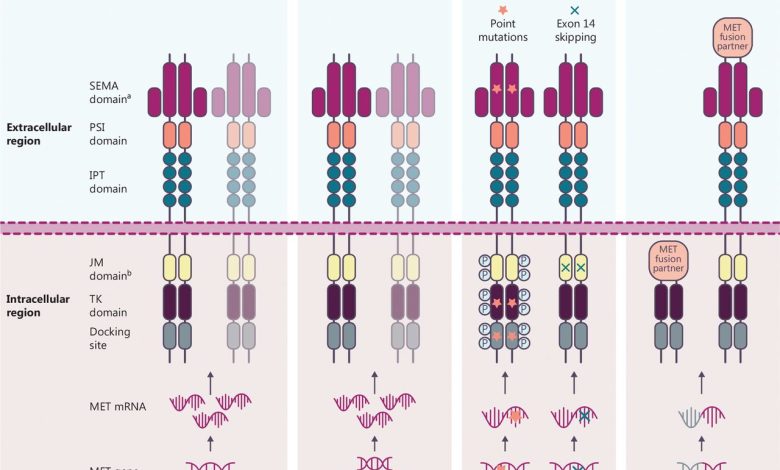Capmatinib 200 mg Tab: A Promising Breakthrough in the Treatment of MET-Altered Lung Cancer

Lung cancer remains one of the most diagnosed and deadliest forms of cancer globally, affecting both smokers and non-smokers alike. While traditional treatments like chemotherapy and radiation are still commonly used, advances in precision medicine have revolutionised how we treat specific types of lung cancer, especially those driven by genetic mutations. One such cutting-edge development in the fight against non-small cell lung cancer (NSCLC) is the introduction of Capmatinib 200 mg Tab.
Capmatinib is a targeted therapy designed to address a rare mutation in the MET gene, which contributes to tumour growth and survival. For patients with MET exon 14 skipping alterations, this medication offers a new hope—targeting cancer at its genetic root. With FDA approval and growing global use, Capmatinib is gaining recognition for its clinical effectiveness and manageable side effect profile.
This article will explore how Capmatinib works, who it is intended for, its benefits and side effects, and how brands like RAHIKA 200 MG TABLET are helping make this drug more accessible.
What Is Capmatinib 200 mg Tab?
Capmatinib is an oral medication used in the treatment of adult patients with non-small cell lung cancer (NSCLC) who test positive for MET exon 14 skipping mutations. These mutations are present in approximately 3–4% of NSCLC cases and are associated with poor prognosis when left untreated.
The drug is classified as a MET tyrosine kinase inhibitor. It works by blocking the MET signaling pathway, which is abnormally active in patients with this mutation. By inhibiting this pathway, Capmatinib effectively reduces tumour growth, slows disease progression, and in some cases, shrinks tumours altogether.
Capmatinib was granted accelerated approval by the US Food and Drug Administration due to its strong performance in clinical trials, especially in treatment-naïve patients with MET alterations.
How Does Capmatinib Work?
Cancer cells often rely on genetic mutations to fuel their growth and spread. In the case of MET exon 14 skipping mutations, the MET gene becomes overactive, causing cells to divide uncontrollably. Capmatinib binds to and blocks the MET protein’s activity, shutting down this overactive signaling.
Unlike chemotherapy, which indiscriminately kills both healthy and cancerous cells, Capmatinib selectively targets the cancer-driving mutation, which leads to better effectiveness and fewer side effects. Because it specifically addresses the molecular driver of the disease, it is considered a personalised treatment.
Who Can Benefit from Capmatinib 200 mg Tab?
Capmatinib is specifically intended for adult patients with non-small cell lung cancer whose tumours test positive for MET exon 14 skipping alterations. This requires a specialised genetic test, often using tissue biopsy or liquid biopsy methods.
This targeted therapy is recommended for:
- Patients newly diagnosed with NSCLC with MET alterations
- Patients who have progressed on previous treatments
- Individuals ineligible for conventional chemotherapy or immunotherapy due to other health conditions
The effectiveness of Capmatinib has been observed across both treatment-naïve and previously treated patients. However, as with all targeted therapies, genetic confirmation of the MET alteration is a prerequisite for eligibility.
RAHIKA 200 MG TABLET: A Trusted Brand of Capmatinib
One of the widely used and trusted formulations of Capmatinib is RAHIKA 200 MG TABLET. Manufactured to meet strict pharmaceutical quality standards, RAHIKA offers a reliable and cost-effective alternative to the original brand-name drug.
RAHIKA 200 MG TABLET contains Capmatinib 200 mg and is taken orally as prescribed by an oncologist. It provides patients with a convenient way to access life-changing therapy without the financial burden often associated with targeted treatments. Many oncologists in India and other developing nations recommend RAHIKA for patients who require ongoing access to Capmatinib due to its affordability and therapeutic consistency.
Clinical Benefits of Capmatinib
Capmatinib has demonstrated impressive results in clinical studies, particularly in the GEOMETRY mono-1 trial, which served as the basis for its regulatory approval. In this trial, patients with MET exon 14 skipping mutations achieved measurable tumour shrinkage, improved progression-free survival, and better overall quality of life.
Patients who were newly diagnosed and had not received prior treatment responded especially well to Capmatinib. Many showed rapid improvement in symptoms such as coughing, breathlessness, and fatigue, often within weeks of starting therapy. In addition to lung tumours, Capmatinib has shown the ability to penetrate the brain and offer activity against brain metastases—an important consideration, since many lung cancer patients eventually develop secondary tumours in the brain.
Overall, Capmatinib has proven to:
- Deliver durable clinical responses
- Improve overall survival rates in MET-altered NSCLC
- Offer an alternative to chemotherapy and immunotherapy
- Work effectively as a first-line treatment
Dosage and Administration
Capmatinib 200 mg is typically prescribed as two tablets taken twice daily, with or without food. The total daily dose is 800 mg, though this may be adjusted based on the patient’s tolerance or side effects.
Treatment is continued as long as the patient is responding to the therapy and not experiencing any serious adverse effects. Regular follow-ups and imaging scans are necessary to monitor tumour response and detect any disease progression.
Patients are advised to take the medication at the same times each day and not to skip or double doses. Tablets should be swallowed whole with water and not crushed or chewed.
Possible Side Effects of Capmatinib
While generally well tolerated, Capmatinib may cause side effects in some patients. Most are mild to moderate and can be managed with supportive care or dosage adjustments. Commonly reported side effects include:
- Nausea or vomiting
- Fatigue
- Peripheral edema (swelling, especially in legs and feet)
- Loss of appetite
- Increased liver enzymes (ALT/AST)
- Photosensitivity (skin becomes sensitive to sunlight)
In rare cases, patients may experience serious side effects such as pneumonitis (inflammation of the lungs) or severe liver injury. Therefore, liver function tests and lung monitoring are essential during treatment.
Patients should immediately report symptoms like breathing difficulty, yellowing of the eyes or skin, dark urine, or persistent fever to their healthcare provider.
Precautions and Considerations
Before starting Capmatinib, it is crucial to undergo comprehensive medical evaluation, including:
- Confirmation of MET exon 14 skipping mutation through molecular testing
- Liver function tests
- Kidney function tests
- Review of current medications to avoid drug interactions
Capmatinib is not recommended for use during pregnancy or breastfeeding. Women of childbearing age should use effective contraception during and for at least one week after the last dose of Capmatinib.
Patients with pre-existing liver conditions should be closely monitored, and those with severe liver impairment may require dose adjustments or alternative therapies.
Accessibility and Affordability
One of the challenges with targeted therapies is the high cost, which can limit access for many patients. However, with the introduction of generics and equivalent formulations like RAHIKA 200 MG TABLET, patients now have a more affordable way to access Capmatinib treatment without compromising on quality.
RAHIKA offers a therapeutic equivalent to international standards, ensuring that cancer care is not just effective but also financially sustainable. It is readily available in India and can be sourced through reputable pharmaceutical distributors and online platforms, making it easier for patients to continue uninterrupted treatment.
Future of Capmatinib and MET Inhibitors
Capmatinib is only the beginning of what could be a new era in personalised lung cancer therapy. Ongoing studies are exploring its use in combination with immunotherapies, chemotherapy, and other kinase inhibitors to expand its effectiveness. There is also active research into its potential role in treating other cancers with MET dysregulation, such as colorectal, liver, and kidney cancers.
The development of companion diagnostics is further streamlining the identification of eligible patients, allowing for faster and more accurate treatment decisions.
As precision medicine continues to evolve, therapies like Capmatinib are expected to become standard practice in oncology settings worldwide.
Final Thoughts
Capmatinib 200 mg Tab is a revolutionary targeted therapy for patients with MET exon 14-mutated non-small cell lung cancer. It provides new hope to those previously underserved by conventional treatments, offering a highly effective, well-tolerated, and patient-friendly option.
With the availability of high-quality generic alternatives like RAHIKA 200 MG TABLET, access to this life-changing medication has become more widespread, empowering more patients to take control of their treatment journey.
If you or someone you know has been diagnosed with MET-altered lung cancer, speak to your oncologist about genetic testing and whether Capmatinib may be a suitable option. With the right treatment, there’s every reason to move forward with confidence and hope.








